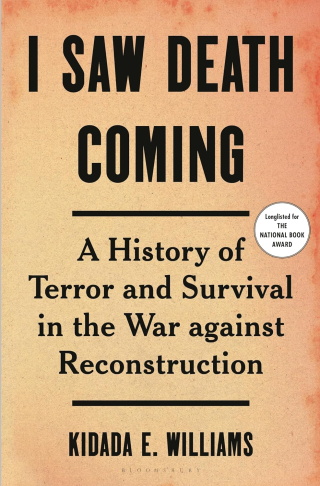In his book Robert E. Lee and Me, Ty Seidule rejects the term “plantation” and instead embraces the term “enslaved labor camp” to describe the conditions enslaved African Americans faced while working on large scale agricultural properties in the U.S. South before the Civil War. In her book I Saw Death Coming: A History of Terror and Survival in the War Against Reconstruction, Kidada E. Williams likewise rejects the term “plantation” and calls for using the term “forced labor camp.” According to Williams, “the word ‘plantation’ reflects the enslaving class’s romanticized view of slavery. ‘Labor camp’ or ‘forced labor camp’ more accurately describes the living conditions enslavers forced upon the men, women, and children they held in bondage” (1). Last year, Fort Pulaski National Monument created a pop-up exhibit called “Words have Power” that also embraced the term “forced labor camp” as a suitable replacement for “plantation.”
Seidule and Williams have produced wonderful works of scholarship that should be read by all. Any historic site that takes the work of interpreting slavery seriously should be applauded and encouraged to keep up the good work. However, I do not embrace the terms “forced labor camp” or enslaved labor camp” in my own work interpreting slavery.
Let’s begin with the term “forced labor.” What immediately sticks out to me is that forced labor is not synonymous with enslaved labor or slavery. Forced labor doesn’t always mean “enslavement.” Indentured servitude is a form of forced labor, but it is not slavery. The rapidly industrializing economy of the Gilded Age featured company towns, union busting, poor wages, long hours, child labor, and horrific working conditions. Those company towns could very easily be defined as “labor camps.” Depending on your perspective, they approached something akin to forced labor and enslavement in a certain sense, but it’s nevertheless hard to make a direct comparison with the conditions that existed with antebellum slavery.
What makes chattel slavery in the United States a particularly horrific form of forced labor is that it was premised on the idea of human ownership of other humans as property. Property to be bought, sold, traded, loaned, and insured like livestock animals and tools. The U.S. form of slavery was rooted in the idea of enslavement as inherited, race-based, and for life. “Forced labor” conflates different forms of labor throughout history and minimizes the uniquely brutal conditions of chattel slavery that existed in the United States during its first eighty years of existence.
